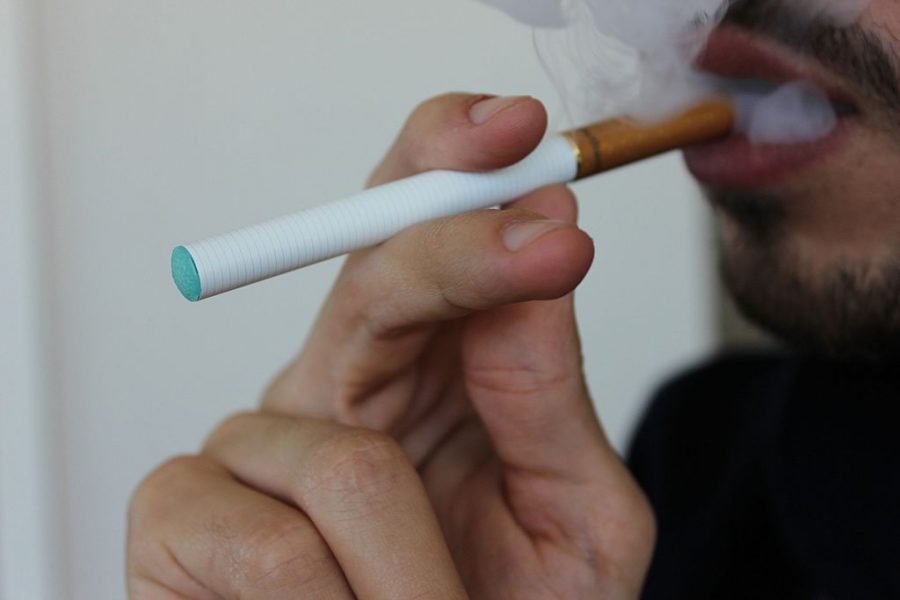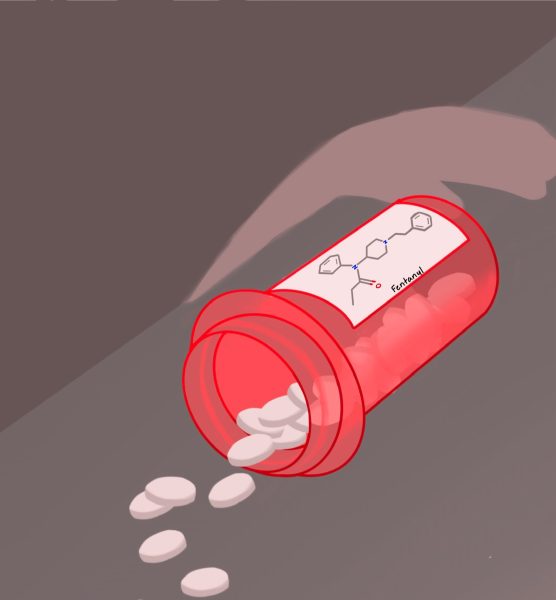Vaping an Increasing Problem Among Teens
High school bathrooms have become hot spots for vaping during school hours. In recent years, e-cigarettes, or vaping, has replaced burned cigarettes as a source of nicotine for teens.
Assistant Principal Ryan Patti says he has been told that students have been vaping in the BHS bathrooms.
“It started last school year, but it’s been a bigger problem this year,” he said.
Vaping is increasingly common among teenagers A 2018 study by the National Institute on Drug Abuse showed that 16.2% of high school seniors have tried e-cigarettes, while 11.4% have used traditional burned cigarettes.
Many students seem to think that e-cigarettes are harmless.
However, the Surgeon General warns that teens can become addicted to the nicotine in e-cigarettes more easily than adults. Vaping can also make it harder to focus. Students should know that the vapor produced by JUUL e-cigarettes is not harmless, but actually contains some of the same toxic chemicals found in smoke from traditional cigarettes.
Vaping has been known to severely damage the lungs with effects including increased inflammation and disabled cells that protect lung tissue, which makes them vulnerable to dust, bacteria and allergens that might lead to lung diseases. Once kids get hooked on JUULing, it could lead to smoking cigarettes later in life.
The Beachcomber interviewed two students, one current and one former e-cigarette user. The students did not want to be identified.
“[F]or some, vaping is just a fun way to puff out air,” the former user said. “But JUULPods actually have nicotine, so you get more of a buzz from it. I think a lot of people have anxiety and [they think it could] help them calm down, but sometimes it does the opposite and it can make you even more hyper.”
She said she used to use JUUL every day, but warns that the nicotine levels may cause serious damage to the body.
“People shouldn’t vape too often. Someone I know passed out because they overdid it,” she said.
Last year, a single JUULPod contained about 5 percent nicotine, which is as much as a pack of cigarettes.
In Aug. of 2018, the JUUL company gave users the option to reduce the amount of nicotine they intake to about three percent. The positive side of this is that people are less likely to smoke if there is a reduced level of nicotine. A 2015 study published in The New England Journal of Medicine found that a lower nicotine level reduced nicotine exposure and the number of cigarettes smoked.
The student who quit JUULing says that no one knows what medical risks vaping has, but she has no problem with others using it if they don’t abuse the drug.
“I wouldn’t recommend vaping to others; you should never start,” she said. “It can become addictive, and you never know how your body might react to the chemicals you’re breathing in”
A second student, who still uses e-cigarettes, had similar views on the epidemic.
“[I started vaping] for the fun tricks, for the clout,” she said.
Influence from peers is one of the main causes of vaping in schools.
“If it has nicotine you get a buzz, and the buzz feels really good,” she said.
This student does find that when she vapes, it is harder to focus in class.
“[I’ll] be sitting in class and it gets hard to focus because [I crave] it so much,” she said.
The student, who enjoys singing, also discovered that vaping can ruin her singing voice because it makes her lungs oily.
Even with the knowledge that vaping is unhealthy, she still vapes.
“[I like] the buzz feeling, the tricks, the attention… It’s addicting,” she said.
Although she currently vapes, she believes that if someone wants to use Juuling as a way to cope with anxiety, they should look into other options.
“…[N]icotine gives you more of a buzz and makes you more hyper,” she said. “If you wanted to use it to… help your anxiety, it could make it worse.”
Both of the students seem to agree that there are better ways to cope with problems other than vaping.
This semester, the freshman Student Council created anti-vaping posters and posted them in the school bathrooms. Many students drew on the signs, not taking them seriously.
One of the students was asked for her take on the student council posters.
“[They] could’ve done better. Instead of saying ‘don’t do something’ they could’ve explained why you shouldn’t do it,” she said.
She believes that students will most likely ignore the suggestion to stop doing something that’s popular, but if they’re shown the effects of it, it could make them rethink their decision.














